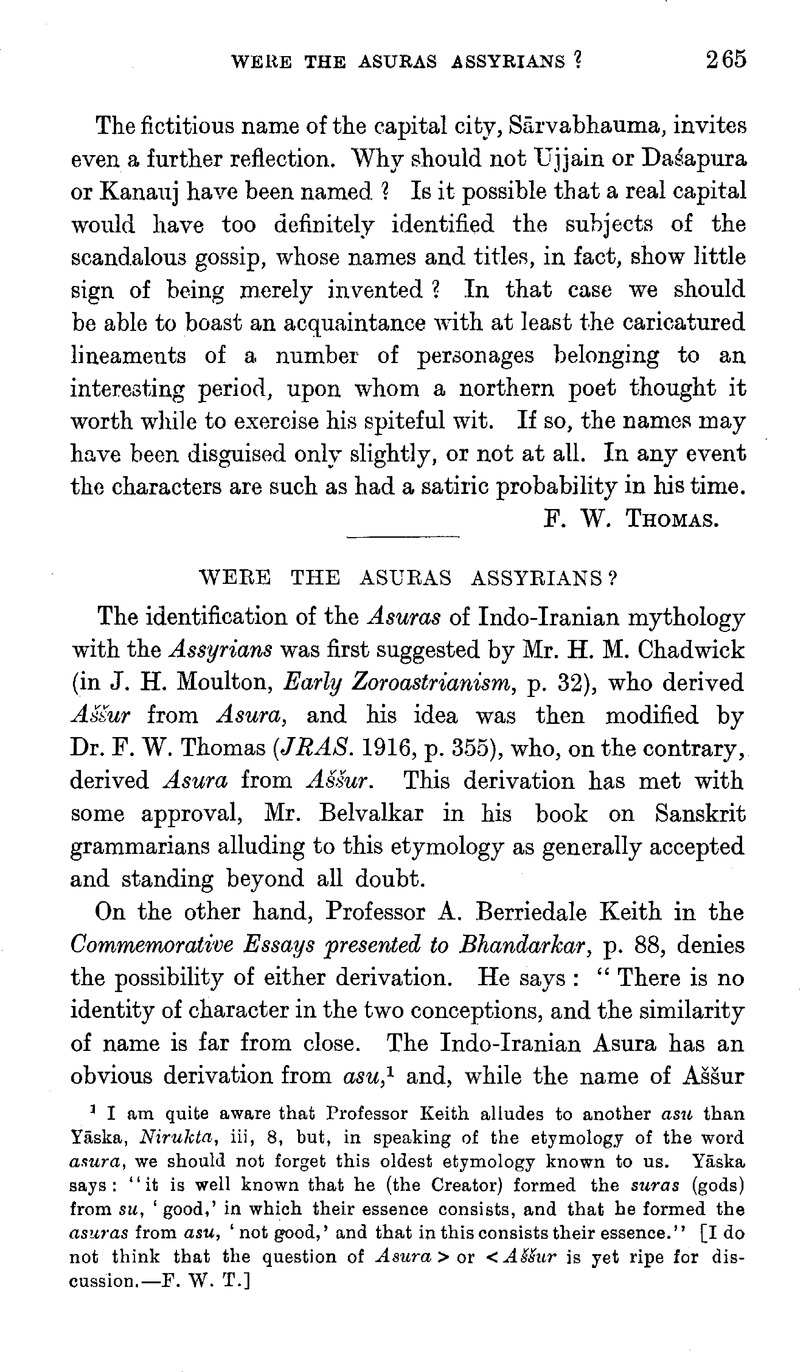No CrossRef data available.
Article contents
Were the Asuras Assyrians?
Published online by Cambridge University Press: 15 March 2011
Abstract

- Type
- Miscellaneous Communications
- Information
- Copyright
- Copyright © The Royal Asiatic Society 1924
References
page 265 note 1 I am quite aware that Professor Keith alludes to another asu than Yāska, Nirukta, iii, 8, but, in speaking of the etymology of the word asura, we should not forget this oldest etymology known to us. Yāska says: “it is well known that he (the Creator) formed the suras (gods) from su, ‘ good,’ in which their essence consists, and that he formed the asuras from asu, ‘ not good,’ and that in this consists their essence.” [I do not think that the question of Asura > or < Aššur is yet ripe for discussion.— F. W. T.]
page 267 note 1 [This argument is evidently fallacious, and the fallacy vitiates all that follows. A similar argument would prove the s of Paris to be still pronounced in France. We do not know when the Assyrians and Babylonians first heard of Aśura Mazdā.—F. W. T.]


